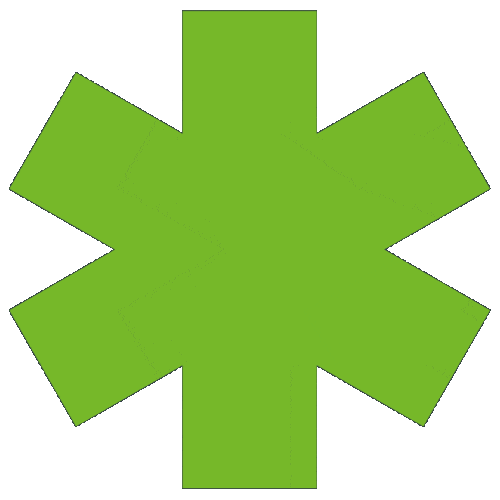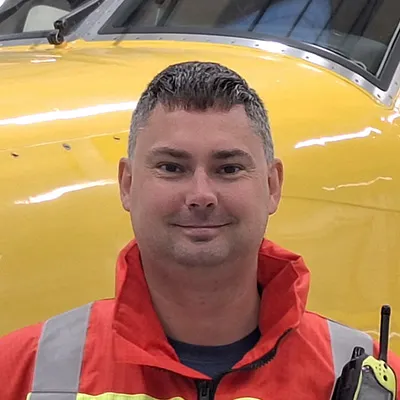Advanced Paramedic
An Advanced Paramedic is a registered paramedic who has completed a postgraduate Master’s degree (MSc) in a subject relevant to their area of practice. They possess, and continue to build upon, an expert knowledge base, advanced clinical decision-making skills, and a high level of competence and professional judgement within their specialised area of advanced practice. While there may be a particular area of focus, similar to that seen in specialist practice, there is an expectation of continued professional development across all four pillars. Advanced Paramedics play a vital leadership role, often working in collaboration with, or under the guidance of, a Consultant Paramedic. However, this role does may not necessarily include formal line management responsibilities.
Case studies
Use the case studies below to learn more about the experiences of different individuals.
A person’s role may start to develop more formally into the other quadrants. Each person has a pie chart showing how much of the different quadrants is involved in their role.
Below is the colour code for each quadrant:
Education
Leadership & Management
Research & Development
Clinical Practice
Education
Leadership & Management
Research & Development
Clinical Practice
Wayne Thomson
Job title: Air Ambulance Paramedic at Scottish Ambulance Service
Entry route: DipHE

What steps did you take in your professional journey to obtain your current position?
I Joined the Scottish Ambulance Service in November 2017 as a Student Technician, based at Stonehaven Ambulance Station. 18 months later, I qualified as a Technician working on frontline A and E vehicles as a relief staff member. In September 2020 I started my Dip HE studies through the Ambulance Service and Glasgow Caledonian University to become a Paramedic. This was a challenge as this was during lockdown and all education facilities were closed. We were used to see how higher education could be opened up safely. In October 2021 I qualified as a Paramedic and became registered with the HCPC. I continued in my role on frontline A and E vehicles going on to obtain my ALS qualification with the Resus Council and becoming an ILS instructor at the Univertisy of Aberdeen for the medical students. In March of 2023 I applied for and was successful in becoming a reservist on the fixed wing Air ambulance based at Dyce airport, Aberdeen and in October 2023 started a 5 year secondment to the air wing. In September 2023 I commenced by BSc Professional Practice (Paramedic Studies) through the University of Stirling.

What does your typical working week/day look like?
Lorem ipsum dolor sit amet, consectetur adipiscing elit, sed do eiusmod tempor incididunt ut labore et dolore magna aliqua. Ut enim ad minim veniam, quis nostrud exercitation ullamco laboris nisi ut aliquip ex ea commodo consequat. Duis aute irure dolor in reprehenderit in.

What is your favourite thing about your role?
The best part of my job is taking patients home after weeks in treatment on the mainland and seeing their gratitude when they see their homes.

What about your role is most challenging?
The hardest part of this role is transferring palliative patients but it also comes with the sense of pride that you are fulfilling their last request to go home to be with their families and surroundings they cherish the most.

What advice would you give to others aspiring to reach your position?
A love of aviation and patience is needed as plans are fluid and change last minute due to limited resource availability. Having at least 2 years post registration experience would be of great advantage along with doing a PHEC or ALS course to give you the confidence of working alone. Set backs are expected and use them as positives to learn from. Researching a role is vital for interviews to know what the job is your going into and to show potential new managers you are passionate in doing the role you want.
Hannah Harrison
20%
20%
60%
Helen Gordon
Trainee Advanced Clinical Practitioner
0%
20%
60%
Kris McLean
Advanced Clinical Practitioner
0%
80%
Mark Gillett
University Lecturer and Advanced Clinical Practitioner
80%
0%
0%
20%
Dale Gedge
Doctoral Researcher and Advanced Clinical Practitioner
0%
80%
0%
Alex Gaspar
Trainee Advanced Critical Care Practitioner

